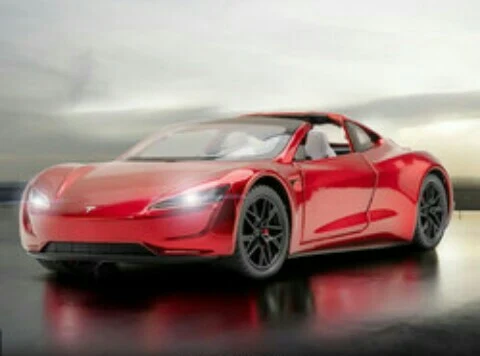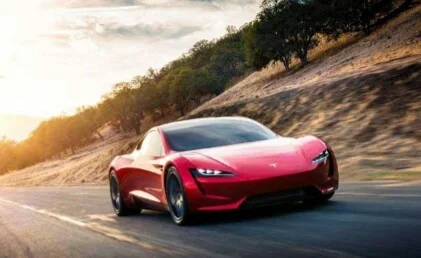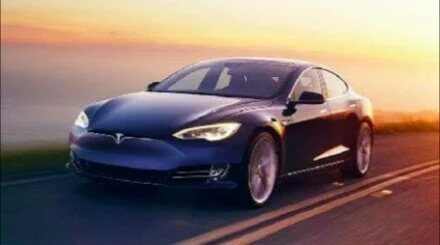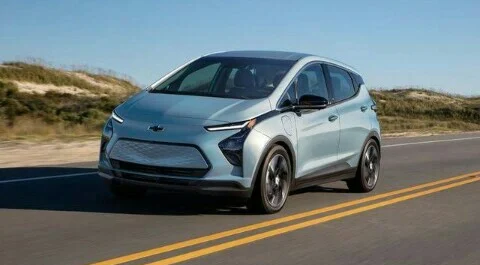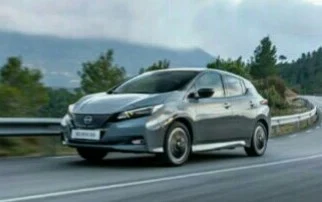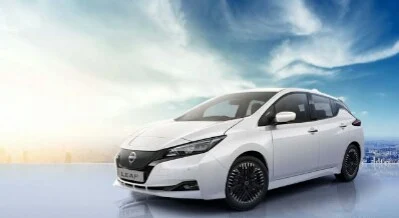Electric Vehicle
Introduction: Best Selling Electric Vehicles
Electric vehicles (EVs) have gained significant popularity in recent years due to their eco-friendliness and the advancement of electric vehicle technology.
As more people embrace sustainable transportation, the market for EVs has grown exponentially. In this article, we will take a closer look at the top four best-selling electric vehicles that have captivated consumers and helped accelerate the global transition to electric mobility.
In the ever-evolving landscape of sustainable transportation, electric vehicles have emerged as pioneers of innovative technology, revolutionizing the way we drive and shaping the future of mobility.
Among the best-selling electric vehicles in the market, four remarkable contenders stand out for their cutting-edge technologies and impressive features. The Tesla Model 3, with its advanced Autopilot capabilities and over-the-air software updates, redefines driving convenience and performance.
Tesla Model S, a trailblazer in the EV world, showcases luxury and efficiency with its long-range capabilities and sophisticated Autopilot system.
On the other hand, the Chevrolet Bolt EV introduces accessibility and practicality, equipped with advanced driver-assistance technologies and a user-friendly infotainment system.
Lastly, the Nissan Leaf, a pioneer in electric mobility, emphasizes user-friendliness and eco-consciousness through its e-Pedal and NissanConnect EV Services. Let's delve deeper into the remarkable technologies that have made these electric vehicles beloved choices for drivers worldwide.
Factors Contributing to Best-Selling Electric Vehicles
| Factor | Description | Example |
|---|---|---|
| Range | The maximum distance a vehicle can travel on a single charge. | Tesla Model 3, Hyundai Kona Electric |
| Price | The initial cost of the vehicle, including government incentives. | Chevrolet Bolt EV, Nissan LEAF |
| Charging Infrastructure | The availability and accessibility of charging stations. | Tesla Supercharger network, public charging stations |
| Government Incentives | Tax credits, rebates, or other financial incentives offered by governments. | U.S. Federal Tax Credit, California Clean Air Incentives |
| Brand Reputation | The overall perception and trust in the vehicle manufacturer. | Tesla, Toyota |
| Performance | Acceleration, handling, and overall driving experience. | Tesla Model S, Porsche Taycan |
| Features and Technology | Advanced features and technology, such as autopilot or infotainment systems. | Tesla Model X, Ford Mustang Mach-E |
| Design and Aesthetics | The overall look and feel of the vehicle. | Tesla Cybertruck, Volkswagen ID.3 |
| Battery Technology | The type and efficiency of the battery used in the vehicle. | Lithium-ion batteries, solid-state batteries |
| Charging Time | The time required to fully charge the vehicle's battery. | DC fast charging, level 2 charging |
Note: These factors can vary depending on regional preferences, government policies, and individual consumer needs.
Technology for 4 Best Selling Electric Vehicles in the Market
1. Best Selling Electric Vehicles: Tesla Model 3
At the forefront of the electric vehicle revolution is the Tesla Model 3. Launched by Tesla in 2017, this midsize all-electric sedan has become an icon in the EV industry.
The Model 3 offers an impressive range, high-performance capabilities, and a luxurious interior. Its sleek design and cutting-edge features have garnered widespread acclaim, making it a top choice among EV enthusiasts worldwide.
Tesla Model 3 Technology
The Tesla Model 3 is renowned for its advanced technology, setting new standards in the electric vehicle market.
Tesla Model 3 Technology
| Feature | Description |
|---|---|
| Battery and Powertrain | |
| Long-Range Battery | Provides impressive driving range on a single charge. |
| Dual-Motor All-Wheel Drive | Enhances acceleration and handling. |
| Regenerative Braking | Conserves energy and extends driving range. |
| Autopilot | |
| Advanced Driver Assistance Systems | Includes automatic steering, lane keeping assist, and adaptive cruise control. |
| Full Self-Driving Capability (Optional) | Enables automatic parking, navigation on autopilot, and summoning the car from a garage. |
| Interior Technology | |
| Large Touchscreen Display | Controls most of the vehicle's functions. |
| Over-the-Air Updates | Introduces new features and improvements to the software. |
| Premium Audio System | Delivers high-quality sound. |
| Connectivity and Entertainment | |
| Wireless Charging | Makes it easy to recharge the battery without using a cable. |
| Streaming Services | Compatible with popular streaming services like Netflix and YouTube. |
| Tesla Mobile App | Allows you to control various aspects of your Model 3. |
Note: The specific features and options available for the Tesla Model 3 may vary depending on the model year and region.
Some of the key technologies found in the Tesla Model 3 include:
1. Electric Powertrain: The Model 3 is an all-electric vehicle, meaning it is powered entirely by electricity stored in its battery packs.
It utilizes one or more electric motors to drive the wheels, providing instant torque and smooth acceleration without the need for a traditional internal combustion engine.
2. Autopilot and Full Self-Driving Capability: Tesla's Autopilot is an advanced driver-assistance system that includes features like adaptive cruise control, lane centering, and automatic lane changes. It helps drivers with tasks like staying within their lane, maintaining a safe following distance, and navigating in traffic.
The Model 3 can also be equipped with Full Self-Driving (FSD) capability, which aims to provide fully autonomous driving once regulatory approval is obtained.
3. Over-the-Air Updates: Tesla is known for its frequent over-the-air software updates, which continuously enhance the vehicle's performance, features, and user experience. This means that Model 3 owners can receive improvements and new functionalities without having to visit a service center.
4. Touchscreen Interface: The Model 3's interior features a large touchscreen display, typically around 15 inches in size, that serves as the central control hub. This intuitive interface allows drivers to control various aspects of the vehicle, access navigation, manage multimedia, adjust climate settings, and much more.
5. Supercharging Network: Tesla has established a vast Supercharger network, which provides high-speed charging stations strategically placed along major travel routes. This network allows Model 3 owners to recharge their vehicles quickly, enabling long-distance travel with ease.
6. Battery Technology: The Model 3 utilizes Tesla's advanced battery technology, featuring lithium-ion battery packs with varying capacities. These batteries are designed to offer excellent energy density, allowing for extended driving ranges and efficient power delivery.
7. Connectivity and Over-the-Air Updates: The Model 3 is equipped with advanced connectivity features, enabling seamless integration with Tesla's cloud-based services.
This connectivity also facilitates over-the-air software updates, allowing the car's software and features to be continuously improved and updated without the need for physical visits to service centers.
8. Regenerative Braking: The Model 3 employs regenerative braking technology, which harnesses energy during braking and deceleration, converting it back into electricity to recharge the battery.
This system improves energy efficiency and contributes to an extended driving range.
Overall, the Tesla Model 3's technology reflects the company's commitment to innovation and its vision for the future of sustainable transportation.
These cutting-edge technologies have not only enhanced the driving experience but also played a significant role in driving the widespread adoption of electric vehicles worldwide.
2. Best Selling Electric Vehicles: Tesla Model S
Another offering from Tesla, the Model S, continues to be a best-seller in the premium electric sedan segment. With its exceptional range and acceleration, the Model S has set the standard for electric luxury cars.
Tesla Model S Technology
| Feature | Description |
|---|---|
| Battery and Powertrain | |
| Long-Range Battery | Provides exceptional driving range on a single charge. |
| Dual-Motor All-Wheel Drive | Enhances acceleration and handling. |
| Regenerative Braking | Conserves energy and extends driving range. |
| Autopilot | |
| Advanced Driver Assistance Systems | Includes automatic steering, lane keeping assist, and adaptive cruise control. |
| Full Self-Driving Capability (Optional) | Enables automatic parking, navigation on autopilot, and summoning the car from a garage. |
| Interior Technology | |
| Large Touchscreen Display | Controls most of the vehicle's functions. |
| Over-the-Air Updates | Introduces new features and improvements to the software. |
| Premium Audio System | Delivers high-quality sound. |
| Connectivity and Entertainment | |
| Wireless Charging | Makes it easy to recharge the battery without using a cable. |
| Streaming Services | Compatible with popular streaming services like Netflix and YouTube. |
| Tesla Mobile App | Allows you to control various aspects of your Model S. |
Note: The specific features and options available for the Tesla Model S may vary depending on the model year and region.
The vehicle's spacious interior, advanced technology, and continuous software updates have solidified its position as a top contender in the EV market.
Tesla Model S Technology
The Tesla Model S has been recognized for its cutting-edge technology, setting new standards in the electric vehicle (EV) industry.
Some of the key technologies found in the Tesla Model S include:
1. Electric Powertrain: The Model S is an all-electric vehicle, powered entirely by electricity stored in its battery packs. It utilizes one or more electric motors to drive the wheels, providing instant torque and smooth acceleration without the need for a traditional internal combustion engine.
2. Over-the-Air Updates: Tesla is known for its frequent over-the-air software updates, which continuously enhance the vehicle's performance, features, and user experience. This means that Model S owners can receive improvements and new functionalities without having to visit a service center.
3. Autopilot and Full Self-Driving Capability: The Model S comes equipped with Tesla's advanced driver-assistance system known as Autopilot. It includes features like adaptive cruise control, lane centering, and automatic lane changes, enhancing the driving experience by providing semi-automated driving assistance.
Additionally, the Model S can be equipped with Full Self-Driving (FSD) capability, which aims to provide fully autonomous driving once regulatory approval is obtained.
4. Large Touchscreen Interface: The Model S features a large and central touchscreen display, typically around 17 inches in size, serving as the control hub for various vehicle functions. This intuitive interface allows drivers to control navigation, multimedia, climate settings, and access a wide range of vehicle information.
5. Battery Technology: Tesla's Model S utilizes advanced lithium-ion battery technology, designed to provide impressive energy density and extended driving ranges. Different battery pack options are available, offering varying levels of range and performance.
6. Regenerative Braking: The Model S employs regenerative braking technology, which captures energy during braking and deceleration and converts it back into electricity to recharge the battery. This system contributes to the overall energy efficiency of the vehicle.
7. Supercharging Network: Tesla has established a global Supercharger network, providing high-speed charging stations along major travel routes. Model S owners can quickly recharge their vehicles, making long-distance travel more convenient and accessible.
8. Connectivity and Infotainment: The Model S is equipped with advanced connectivity features, allowing seamless integration with Tesla's cloud-based services. This connectivity facilitates access to live traffic data, software updates, and multimedia streaming.
9. Advanced Safety Features: The Model S includes a suite of safety features, such as automatic emergency braking, collision warning, blind-spot monitoring, and more. Tesla has consistently focused on safety and continues to update its safety-related technologies.
Please keep in mind that advancements in technology and features may have occurred since my last update. For the most up-to-date information about the technology in the Tesla Model S, I recommend referring to Tesla's official website or consulting the latest product specifications and announcements from Tesla.
3. Best Selling Electric Vehicles: Chevrolet Bolt EV
Chevrolet entered the electric vehicle scene with the Bolt EV, a compact electric hatchback. Since its debut in 2016, the Bolt EV has garnered praise for its affordability, practicality, and long electric range. It caters to consumers seeking an accessible EV option without compromising on performance.
Chevrolet Bolt EV Technology
| Feature | Description |
|---|---|
| Battery and Powertrain | |
| Long-Range Battery | Provides a competitive driving range on a single charge. |
| Single-Motor Front-Wheel Drive | Efficient performance. |
| Regenerative Braking | Conserves energy and extends driving range. |
| Infotainment and Connectivity | |
| Touchscreen Display | Controls most of the vehicle's functions. |
| Chevrolet Infotainment System | User-friendly interface and connectivity features. |
| Smartphone Integration | Supports Apple CarPlay and Android Auto. |
| Safety Features | |
| Advanced Safety Features | Includes automatic emergency braking, lane departure warning, and forward collision alert. |
| OnStar | Connected car service that provides assistance and security features. |
| Charging Capabilities | |
| Level 2 Charging | Faster charging times compared to Level 1 charging. |
| DC Fast Charging | Significantly reduces charging times. |
Note: The specific features and options available for the Chevrolet Bolt EV may vary depending on the model year and region.
Its well-designed interior and responsive driving experience have contributed to its popularity among eco-conscious drivers.
Chevrolet Bolt EV Technology
The Chevrolet Bolt EV is a notable electric vehicle (EV) known for its technology and features.
Here are some of the key technologies found in the Chevrolet Bolt EV:
1. Electric Powertrain: The Chevrolet Bolt EV is a fully electric vehicle powered solely by electricity. It features an electric motor that drives the front wheels, providing instant torque and smooth acceleration without the need for a traditional internal combustion engine.
2. Battery Technology: The Bolt EV is equipped with an advanced lithium-ion battery pack. The battery pack's capacity has evolved over the years, providing improvements in driving range and performance. The vehicle's battery system allows for extended driving ranges on a single charge, making it suitable for daily commuting and even some longer trips.
3. Regenerative Braking: Similar to other electric vehicles, the Bolt EV uses regenerative braking technology. This system captures energy during braking and deceleration, converting it back into electricity to recharge the battery. Regenerative braking enhances energy efficiency and helps maximize the vehicle's range.
4. Infotainment and Connectivity: The Chevrolet Bolt EV typically comes with an advanced infotainment system that includes a touchscreen display. The system provides access to various features, including navigation, media playback, smartphone integration (such as Apple CarPlay and Android Auto), and other connected services.
5. Charging Capabilities: The Bolt EV is equipped with various charging options. It can be charged using standard Level 1 charging from a standard household outlet or Level 2 charging using a home charging station or public charging stations.
Additionally, the Bolt EV supports DC fast charging (often using CCS - Combined Charging System), allowing for quicker charging at compatible public fast-charging stations.
6. Driver-Assistance Technologies: The Bolt EV includes several driver-assistance and safety technologies. Depending on the trim level and options, these features may include lane departure warning, forward collision alert, rear cross-traffic alert, and more.
These technologies contribute to enhancing the vehicle's safety and providing additional peace of mind to the driver.
7. Remote App Connectivity: Chevrolet provides a mobile app that allows Bolt EV owners to remotely access and monitor various vehicle functions. Through the app, owners can check the battery level, start and stop charging, precondition the cabin temperature, and more.
It's important to note that automotive technologies can evolve quickly, and new features or improvements may have been introduced to the Chevrolet Bolt EV since my last update. For the most current and detailed information on the technology and features available in the Chevrolet Bolt EV, I recommend visiting Chevrolet's official website or consulting the latest product specifications and announcements from Chevrolet.
4. Best Selling Electric Vehicles: Nissan Leaf
The Nissan Leaf has been one of the pioneers in the electric vehpicle market. It remains one of the best-selling EVs globally, thanks to its affordability and reliability.
With multiple literations and continuous improvements, the Leaf offers various range options and features to suit different driving preferences. Its practicality and ease of use have made it a favorite choice for EV adopters around the world.
Nissan Leaf Technology
| Feature | Description |
|---|---|
| Battery and Powertrain | |
| Long-Range Battery | Provides a competitive driving range on a single charge. |
| Single-Motor Front-Wheel Drive | Efficient performance. |
| Regenerative Braking | Conserves energy and extends driving range. |
| Infotainment and Connectivity | |
| Touchscreen Display | Controls most of the vehicle's functions. |
| NissanConnect EV | Offers navigation, remote monitoring, and charging station information. |
| Smartphone Integration | Supports Apple CarPlay and Android Auto. |
| Safety Features | |
| Advanced Safety Features | Includes automatic emergency braking, lane departure warning, and forward collision alert. |
| Nissan Safety Shield | Suite of advanced safety technologies designed to help prevent accidents. |
| Charging Capabilities | |
| Level 2 Charging | Faster charging times compared to Level 1 charging. |
| DC Fast Charging | Significantly reduces charging times. |
Note: The specific features and options available for the Nissan Leaf may vary depending on the model year and region.
Nissan Leaf Technology
The Nissan Leaf is one of the pioneering electric vehicles and is equipped with several notable technologies.
Here are some of the key technologies found in the Nissan Leaf:
1. Electric Powertrain: The Nissan Leaf is an all-electric vehicle, powered entirely by electricity stored in its battery pack. It features an electric motor that drives the front wheels, providing instant torque and a smooth driving experience without the need for a traditional gasoline engine.
2. Battery Technology: The Leaf is equipped with a lithium-ion battery pack that has evolved over the years to offer improved energy density and driving range. The vehicle's battery system allows for different trim levels with varying driving ranges on a single charge, catering to different driving needs.
3. Regenerative Braking: Like most electric vehicles, the Nissan Leaf utilizes regenerative braking technology. This system captures energy during braking and deceleration and converts it back into electricity to recharge the battery. Regenerative braking helps improve the Leaf's energy efficiency and extends its driving range.
4. e-Pedal: The Nissan Leaf features an innovative e-Pedal system that allows for one-pedal driving. With the e-Pedal engaged, the driver can accelerate, decelerate, and even come to a complete stop by using only the accelerator pedal.
When the driver releases the pedal, regenerative braking is activated, slowing down the vehicle and converting the kinetic energy back into electricity.
5. ProPILOT Assist: Depending on the trim level and options, the Nissan Leaf can be equipped with ProPILOT Assist, an advanced driver-assistance system.
ProPILOT Assist combines adaptive cruise control and lane-keeping assistance to help the driver maintain a set speed and distance from the vehicle ahead, as well as stay centered in the lane. However, the driver must remain engaged and keep their hands on the steering wheel.
6. Infotainment and Connectivity: The Nissan Leaf typically comes with an infotainment system that includes a touchscreen display. The system provides access to features like navigation, media playback, Bluetooth connectivity, and smartphone integration, allowing users to access apps and services from their compatible devices.
7. NissanConnect EV Services: Nissan offers the NissanConnect EV Services, a mobile app that allows Leaf owners to remotely access and control various vehicle functions. Through the app, owners can check the battery status, initiate charging, set cabin temperature, and even locate the vehicle.
8. Battery Management System: The Nissan Leaf includes a sophisticated battery management system (BMS) to monitor and optimize the performance and health of the battery pack. The BMS helps maintain optimal charging and discharging patterns to prolong the battery's lifespan.
As technology is continually evolving, it's possible that new features or improvements may have been introduced to the Nissan Leaf since my last update. For the most current and detailed information on the technology and features available in the Nissan Leaf, I recommend visiting Nissan's official website or consulting the latest product specifications and announcements from Nissan.
Best Selling Electric Vehicles: The Efficiency Rate
The efficiency rate of electric vehicles (EVs) can vary based on factors such as driving conditions, battery capacity, driving style, and the specific model of the vehicle.
The efficiency rate is typically measured in terms of "miles per kilowatt-hour" (miles/kWh) or "kilometers per kilowatt-hour" (km/kWh), indicating how far the vehicle can travel on one unit of electrical energy.
Efficiency Rates for the Tesla Model 3, Tesla Model S, Chevrolet Bolt EV, and Nissan Leaf
Note: Efficiency rates can vary based on factors such as driving conditions, driving style, and battery health. The following data is based on general estimates and may not reflect the exact efficiency of your specific vehicle.
| Car Model | Estimated Efficiency (MPGe) |
|---|---|
| Tesla Model 3 | 147 (EPA rating for the Long-Range version) |
| Tesla Model S | 107 (EPA rating for the Long-Range version) |
| Chevrolet Bolt EV | 259 (EPA rating) |
| Nissan Leaf | 149 (EPA rating for the Plus version) |
As you can see, the Chevrolet Bolt EV generally has the highest estimated efficiency among these vehicles. However, the efficiency of each car can vary depending on factors mentioned earlier.
Here are the approximate efficiency rates for the four best-selling electric vehicles mentioned earlier:
1. Tesla Model 3: The efficiency of the Tesla Model 3 can vary depending on the battery pack and trim level. For the Long Range version, it is typically around 4.1 to 4.5 miles/kWh (or approximately 17 to 19 km/kWh).
2. Tesla Model S: Similar to the Model 3, the efficiency of the Tesla Model S can vary based on the battery pack and version. For the Long Range version, it is usually around 3.5 to 4.0 miles/kWh (or approximately 14 to 16 km/kWh).
3. Chevrolet Bolt EV: The Chevrolet Bolt EV is known for its efficiency. Its average efficiency is approximately 4.0 to 4.2 miles/kWh (or about 16 to 17 km/kWh).
4. Nissan Leaf: The efficiency of the Nissan Leaf can also vary based on the battery capacity and version. For the standard Leaf model, it is typically around 3.5 to 4.0 miles/kWh (or approximately 14 to 16 km/kWh).
Please keep in mind that these efficiency rates are approximate and can vary depending on various factors. Additionally, newer models or updates to the vehicles may have introduced changes in efficiency.
Conclusion for Best Selling Electric Vehicles
The electric vehicle market has witnessed a surge in popularity, and these top four best-selling electric vehicles have played a crucial role in driving this transformation.
From Tesla's innovative technology and luxury offerings to Chevrolet and Nissan's commitment to affordability and practicality, each of these EVs has its unique appeal.
As technology continues to advance, and more automakers invest in electric mobility, the future of the EV market looks promising, providing consumers with an increasing array of choices to embrace sustainable transportation.
Frequently Asked Questions About Best-Selling Electric Vehicles
General Questions
1. What are the most popular electric vehicles on the market?
- Tesla Model 3
- Tesla Model Y
- Ford F-150 Lightning
- Chevrolet Bolt EV
- Nissan Leaf
2. What are the key factors to consider when choosing an electric vehicle?
- Range: How far can the vehicle travel on a single charge?
- Charging time: How long does it take to fully charge the battery?
- Price: What is the initial cost of the vehicle, and are there any government incentives available?
- Features: What features and amenities are included in the vehicle?
- Performance: How does the vehicle handle and accelerate?
3. What are the benefits of driving an electric vehicle?
- Environmental friendliness: Electric vehicles produce zero emissions, reducing pollution and contributing to a cleaner planet.
- Cost savings: Electric vehicles can be more cost-effective to operate over time due to lower fuel and maintenance costs.
- Tax incentives: Many governments offer tax incentives for purchasing electric vehicles.
- Quiet operation: Electric vehicles are generally quieter than gasoline-powered cars.
Range and Charging
4. How far can electric vehicles typically travel on a single charge?
- The range of electric vehicles varies depending on the model, battery size, and driving conditions. However, many modern electric vehicles can travel between 200 and 300 miles on a single charge.
5. What are the different types of charging stations?
- Level 1 charging: Uses a standard household outlet and can take several hours to fully charge a battery.
- Level 2 charging: Uses a dedicated charging station and can charge a battery in a few hours.
- DC fast charging: Uses a high-power charging station and can charge a battery in under an hour.
6. How long does it typically take to charge an electric vehicle?
- Charging time depends on the type of charger and the battery capacity. A Level 1 charger can take several hours, while a DC fast charger can charge a battery in under an hour.
Cost and Incentives
7. Are electric vehicles more expensive than gasoline-powered cars?
- The initial cost of an electric vehicle is generally higher than a comparable gasoline-powered car. However, the long-term cost savings from lower fuel and maintenance costs can offset the higher upfront price.
8. Are there any government incentives available for purchasing an electric vehicle?
- Many governments offer tax credits, rebates, and other incentives to encourage the adoption of electric vehicles.
Performance and Features
9. How do electric vehicles compare to gasoline-powered cars in terms of performance?
- Electric vehicles often have impressive acceleration and handling, thanks to their instant torque delivery.
10. What are some of the latest features available in electric vehicles?
- Advanced driver assistance systems (ADAS)
- Over-the-air software updates
- Large touchscreens and infotainment systems
- Autonomous driving capabilities (in some models)
Electric Vehicle Terms
| Term | Definition |
|---|---|
| Electric Vehicle (EV) | Any vehicle powered by electricity. |
| Battery Electric Vehicle (BEV) | An EV that uses batteries as its primary energy source. |
| Plug-in Hybrid Electric Vehicle (PHEV) | An EV that combines a battery-electric powertrain with a gasoline or diesel engine. |
| Hybrid Electric Vehicle (HEV) | A vehicle that uses both an electric motor and a gasoline or diesel engine for propulsion. |
| All-Electric Vehicle (AEV) | A BEV that has no internal combustion engine. |
| Range-Extended Electric Vehicle (REEV) | A BEV with a small gasoline or diesel engine that acts as a generator to recharge the battery. |
| Electric Motorcycle (EM) | An electric version of a motorcycle. |
| Electric Scooter (ES) | An electric version of a scooter. |
| Electric Bicycle (EB) | An electric version of a bicycle. |
| Electric Car (EC) | An electric version of a car. |
| Electric Truck (ET) | An electric version of a truck. |
| Electric Bus (EB) | An electric version of a bus. |
| Electric Taxi (ET) | An electric version of a taxi. |
| Electric Delivery Vehicle (EDV) | An electric vehicle used for deliveries. |
| Electric Utility Vehicle (EUV) | An electric vehicle used for utility purposes. |
| Electric Recreational Vehicle (ERV) | An electric vehicle used for recreational purposes. |
| Electric Golf Cart (EGC) | An electric version of a golf cart. |
| Electric Wheelchair (EW) | An electric version of a wheelchair. |
| Electric Forklift (EF) | An electric version of a forklift. |
| Electric Boat (EB) | An electric version of a boat. |
| Electric Airplane (EA) | An electric version of an airplane. |
| Electric Drone (ED) | An electric version of a drone. |
| Electric Grid (EG) | A network of electrical transmission lines and substations. |
| Electric Charging Station (ECS) | A place where electric vehicles can recharge their batteries. |
| Charging Infrastructure (CI) | The network of charging stations and associated equipment. |
| Battery Management System (BMS) | A system that monitors and controls the battery pack in an EV. |
| Electric Motor (EM) | A device that converts electrical energy into mechanical energy. |
| Electric Controller (EC) | A device that controls the flow of electricity to the electric motor. |
| Electric Vehicle Supply Equipment (EVSE) | A device that supplies electricity to an EV. |

.jpg)
